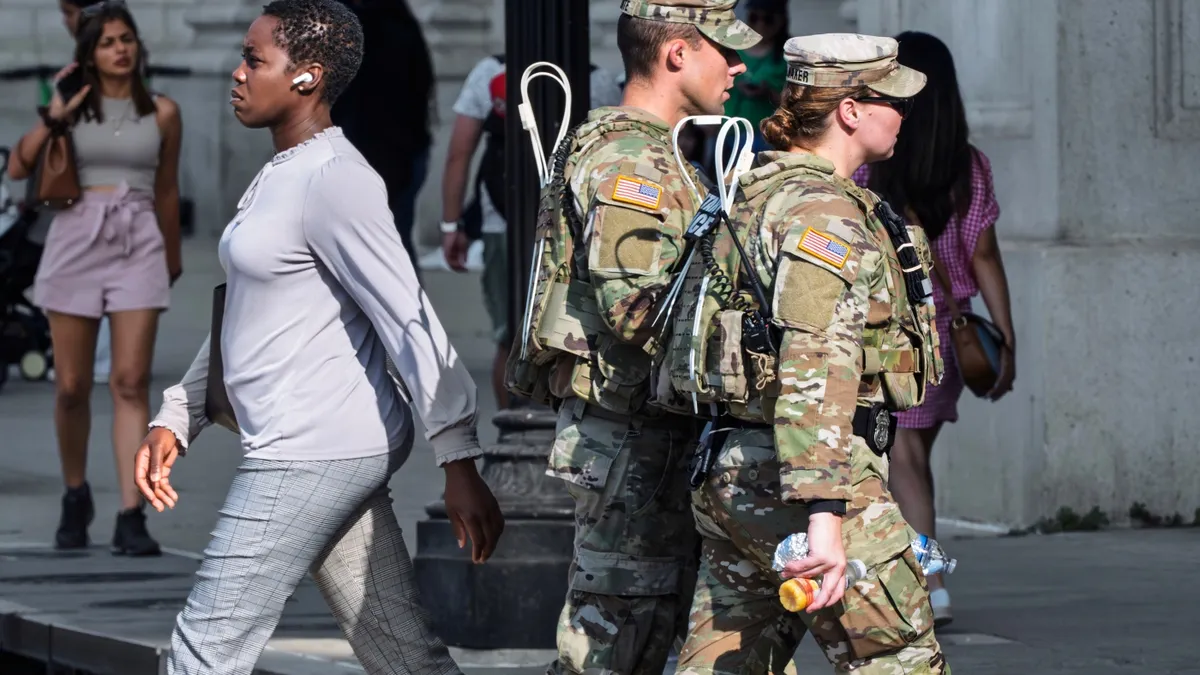
In a significant escalation of its crackdown on law enforcement in the nation’s capital, the Trump administration announced on Thursday that it has appointed the head of the Drug Enforcement Administration (DEA), Terry Cole, as Washington's emergency police commissioner. This move grants Cole the full powers typically held by the District of Columbia's Chief of Police, representing a substantial shift towards greater federal control over the city’s law enforcement.
Attorney General Pam Bondi issued a directive stating that the Metropolitan Police Department (MPD) must now seek approval from Commissioner Cole before executing any orders. This new regulation raises questions about the future role of Pamela Smith, the current police chief for the city, who operates under the mayor's authority. The timing of this directive is crucial, as it follows Smith’s controversial order for MPD officers to share information with immigration agencies about individuals not currently in custody. The Justice Department indicated that Bondi disagreed with Smith's directive, as it was viewed as perpetuating sanctuary policies.
Bondi's directive not only rescinds Smith's order but also nullifies other MPD policies that limited inquiries into individuals' immigration status and prohibited arrests based solely on federal immigration warrants. This marks a significant shift towards federal intervention in local law enforcement, as all future directives will require Cole's approval.
This police takeover exemplifies President Donald Trump's ongoing efforts to explore the limits of his legal authority in advancing his agenda. By leveraging obscure statutes and declaring a state of emergency, the administration aims to reinforce its tough-on-crime narrative, particularly as it seeks to expedite the deportation of undocumented immigrants.
Despite the administration's portrayal of a public safety crisis, Washington has seen a relatively low homicide rate compared to other major U.S. cities. The announcement of increased federal presence comes amidst visible tensions in the city, as residents experience an uptick in police activity. National Guard troops have been deployed to oversee some of Washington's most iconic landmarks, further signaling a heightened state of alert.
Thursday marked a notable increase in the visibility of federal forces across the city, particularly in high-traffic areas. President Trump retains the authority to take over federal law enforcement for a period of 30 days, after which Congress must review his actions. Until now, the federal response had been relatively subdued; however, the establishment of checkpoints in popular nightlife districts led to protests and 45 arrests on one particularly eventful night.
Activated by Trump, 800 National Guard members are tasked with various missions, including community safety patrols and the protection of federal assets. Pentagon spokesperson Kingsley Wilson stated that the Guard members will not be armed and are trained to assist in traffic and crowd control, contributing to a visible law enforcement presence intended to deter crime.
The ongoing operation has created uncertainty for Washington's homeless population. Volunteers have assisted several residents in packing up their belongings as part of an effort to clear longstanding encampments. While the removals were generally voluntary, the presence of law enforcement has raised concerns that future actions may become more forceful. Advocates fear that the administration's policies will lead to the dismantling of remaining homeless encampments across the city.
As city workers prepare to clean public spaces, including Washington Circle, advocates are closely monitoring the situation. With federal officers increasingly visible in the city, the atmosphere remains tense, and the potential for escalation in law enforcement actions looms large.
The Trump administration's recent moves illustrate a significant shift towards federal oversight of local policing in Washington, D.C., raising critical discussions about the implications for community safety, civil liberties, and the ongoing debate surrounding immigration policies in the United States.